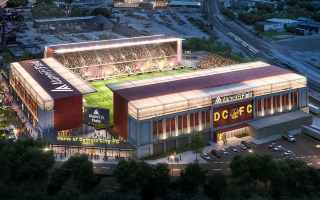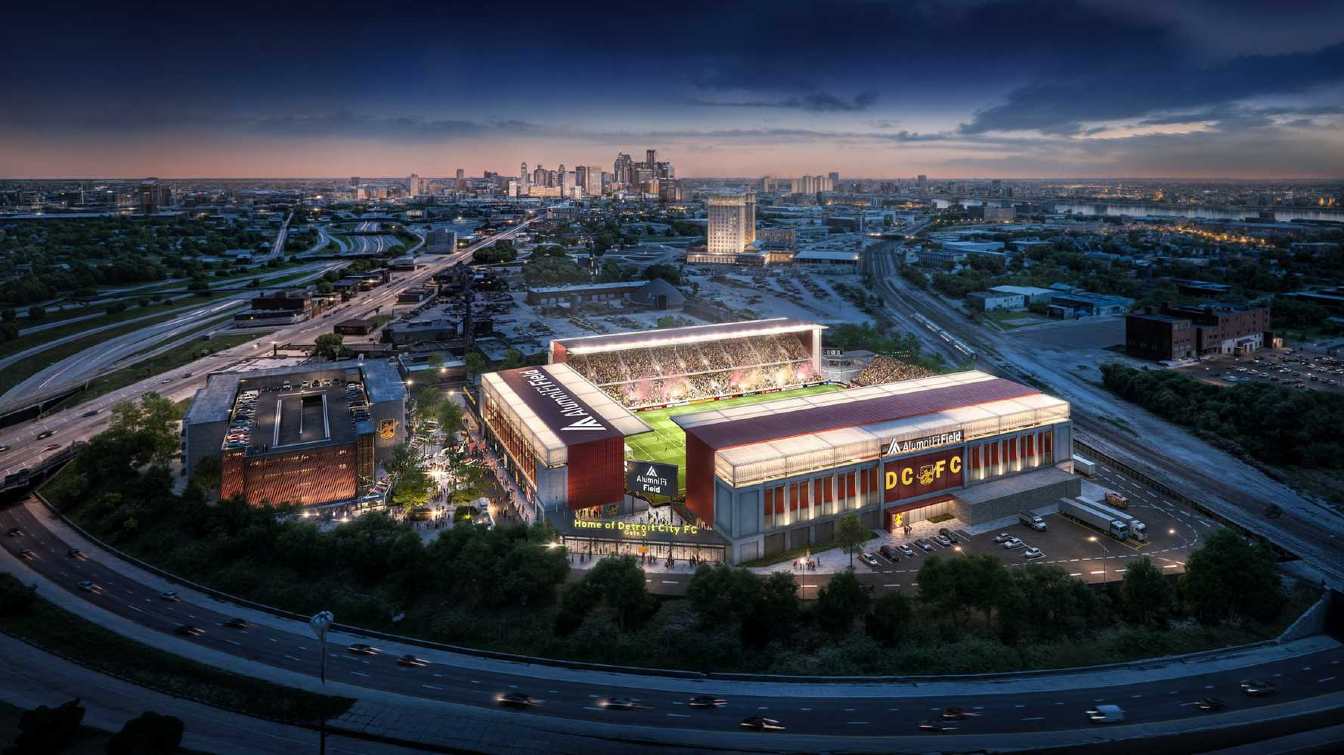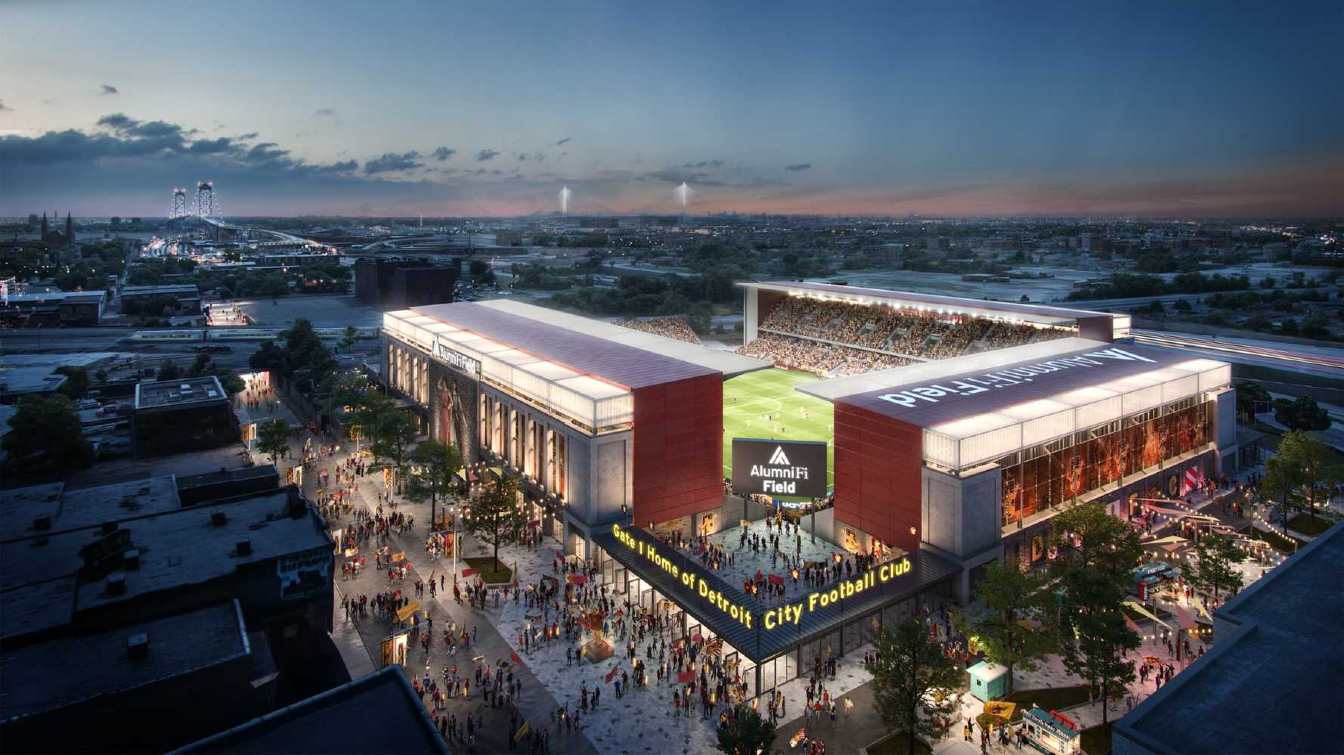USA: Green light for the new Detroit City FC stadium
source: StadiumDB.com; author: Paulina Skóra
 The Detroit City Council has unanimously approved both the Community Benefits Agreement (CBA) and the revised brownfield incentive package for the construction of Detroit City FC’s new stadium in Corktown, on the city’s southwest side.
The Detroit City Council has unanimously approved both the Community Benefits Agreement (CBA) and the revised brownfield incentive package for the construction of Detroit City FC’s new stadium in Corktown, on the city’s southwest side.
Advertisement
Residents divided: opportunity for some, unfinished project for others
The decision came on November 25 after hearing from residents and supporters urging the council to adopt the agreement tied to the AlumniFi Field project. Seven council members voted in favour; council president and mayor-elect Mary Sheffield, along with council member Mary Waters, were absent.
Many locals and DCFC supporters highlighted the potential impact on young people. Youth coach Duane Daniels argued that the stadium could become a place offering purpose and an alternative to violence-stricken environments. Drawing from his own background in tough neighbourhoods, he said he tries to show young people that even dreams of professional football can be within reach.
But not all Corktown residents were convinced. Bill Cheek said the project lacked key details on traffic flow, parking plans and noise management. In his view, the city should have demanded stronger guarantees. Meanwhile, Khari Turner — whose son plays in the club’s academy — stressed that DCFC has built an environment where kids from different neighbourhoods and backgrounds grow together. He added that the new stadium would be more than a sports venue: it would serve as a community anchor and a source of shared identity.
 © HOK
© HOK
Stadium to rise on former hospital site
The new stadium will be built at Michigan Avenue and 20th Street, on the long-abandoned Southwest Detroit Hospital grounds. The complex had deteriorated badly — nearly two million gallons of water had accumulated in its basement and were pumped out this past summer. AlumniFi Field will hold 15,000 spectators, more than twice the capacity of DCFC’s current home, Keyworth Stadium in Hamtramck.
The full project is priced at $198 million, with $153 million allocated to the stadium itself. A four-storey mixed-use building will go up alongside it, featuring 76 residential units of varying sizes, 8,500 square feet of commercial space and a 421-spot parking garage. Another 680 parking spaces are planned at ground level within the complex.
The housing mix includes at least eight studios, 60 one-bedroom units and eight two-bedroom units. Sixty apartments will be reserved for households earning up to 80% of the Area Median Income (AMI), which for Detroit stands at $56,560 for a one-person household. Another eight units will be reserved for residents earning up to 60% AMI.
$88 million in public incentives and brownfield capture
Although the stadium is privately financed, DCFC is seeking a package of tax breaks and incentives worth $88 million over 30 years. The largest portion comes from the brownfield capture mechanism, projected at around $74 million from future taxes generated by the site. The project is also set to benefit from two commercial incentives worth just under $14 million combined.
According to the current schedule, construction on the stadium will begin in March. Co-owner Sean Mann says the timeline is tight but still achievable, with an eye on opening for the 2027 USL Championship season. Demolition at the former hospital site has already begun, and, as Mann put it, the real wrecking balls
are expected in the coming weeks. Construction of the residential building is slated for November 2026 and will take two years. The overall project is expected to create 142 full-time jobs and more than a thousand construction positions during the build phase.
 © HOK
© HOK
What the CBA includes: 46 commitments over 12 years
Negotiated throughout the fall by a nine-member resident committee and club representatives, the CBA outlines 46 commitments valid for 12 years. They include a one-time $200,000 payment to a low-interest loan fund for local small businesses and $1.2 million in community grants — $100,000 delivered annually to organisations in housing, culture and education.
It also guarantees the distribution of 3,000 free tickets annually to residents of nearby neighbourhoods, hiring preference first for ZIP codes 48216, 48208, 48210 and 48209, and then for all Detroit residents. DCFC will work with Detroit At Work to fill stadium jobs. For the first five years of stadium operations, the club commits to a $17 minimum hourly wage for all stadium employees.
The CBA also includes cultural and symbolic elements: at least $50,000 for art installations and murals referencing the history of Southwest Detroit and the former hospital; limited use of facial-recognition technology; a mentorship program for youth interested in sports-related careers; and a $100,000 investment in a new mini-pitch to be completed by the end of 2028. It also requires that at least 51% of construction workers be Detroit residents and that half of stadium vendors come from the city. Construction work will be restricted to 7 a.m.–6 p.m. from Monday to Friday.
Parking has long been a concern for Corktown residents. The agreement ensures a total of 2,500 parking spaces in the stadium area to reduce the impact of matchdays on surrounding streets.
Advertisement
 StadiumDB
StadiumDB